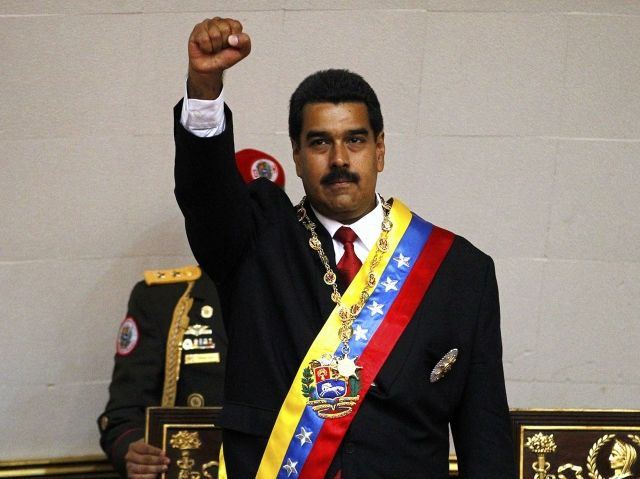Venezuela's Nicolas Maduro Asked Parliament For Decree Power; Opposition Says It Is A Distraction Maneuver

These are hard times for Venezuelan President Nicolás Maduro. In the six months he has been at the head of the government, the economy has gone into deep crisis, the currency has tanked and the country is more divided than ever. Maduro’s plan is, however, to deny it all, blame the “rumors” on a right-wing conspiracy, and call on feelings of nationalism and pride -- very similar to what the late Comandante Hugo Chávez used to do.
“We need to go past the point of no return with the revolution,” Maduro said in a televised speech on Tuesday that last almost three hours. “We need to warrant the permanency of socialism.”
Along those lines, Maduro has requested from Parliament decree powers, which would grant him legislative powers for a year. According to Maduro, he needs the so-called Enabling Law to crack corruption in the country and tackle economic problems.
“We’ve come to ask for decree powers that will give us a solid legal basis to act quickly and firmly against this badness this sickness,” he told lawmakers. “If corruption continues and perpetuates the destructive logic of capitalism, there won’t be socialism here anymore … Corruption must stop being a normal part of our political life.”
He did not, however, specify what laws or particular areas that they would affect. During his speech, Maduro made allusions to starting popular juries (“we should not stop the new ethics of the people”), more expropriations (“70 percent of oil is still in private hands”) and stronger control of the media (where “lies dominate and the truth is devalued").
Maduro made corruption a central point of his speech, saying that prisoners found guilty of corruption should be under maximum penalty. He urged Venezuelans to reject corruption wherever it originated, whether in the opposition ranks or among his own supporters: “It’s the same gangsterism, no matter how it’s dressed up.”
Watchdog Transparency International ranked Venezuela as the ninth most corrupt country in the world.
Opposition mocked Maduro, saying he is a poor imitation of Chávez, and noting that his administration has made more damage in the country’s economy in six months than in its previous history.
Inflation is currently at an annual 45 percent, and the bolívar is the most devalued currency in the continent, having dropped 32 percent this year. The restricted access to dollars fueled a shortage of imported goods, ranging from toilet paper to communion wine to diapers.
The opposition, led by Henrique Capriles, accuse Maduro of inventing excuses for his own incompetence. “Maduro and his gang will be remembered as presiding over the most corrupt period in the history of Venezuela,” Capriles said. “He wants to distract the people from their problems. Decree power will not help the government be successful.”
The last time Chávez was granted decree powers was in 2010 for a year and a half. He insisted he needed it to deal with a national emergency related to floods that made nearly 140,000 people homeless.
Chávez passed nearly 200 laws by decree during his time in office, including legislation that allowed him to nationalize oil projects and increase his influence in the Supreme Court.
© Copyright IBTimes 2024. All rights reserved.




















